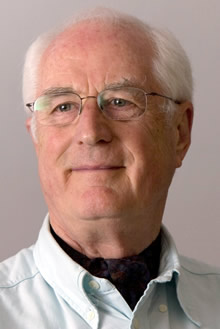
Ray Pahl
A special tribute session is to be held at the Understanding Society/BHPS Conference to the inspirational sociologist Ray Pahl who died earlier this month. Ray Pahl: A Celebration of a Sociological Career will be chaired by Professor David Rose, who has just written this special tribute to his former colleague and friend:
Ray had a research career stretching back to 1960, when he began work on class, community and social cohesion in Hertfordshire commuter villages. However, he never lived in the Ivory Tower. He engaged with a wide variety of organisations to bring the insights from his research to the public realm. In the best traditions of sociology, he connected private troubles to public issues. From 1968 to 1979, as a result of his work in urban sociology, he worked for the Department of the Environment in different capacities, including as an Assessor to the Greater London Development Plan.
From 1976 he began a new line of research, seeking to broaden out the narrow view of work which was then characteristic in sociology and which perceived it as being synonymous with male employment. His main scholarly contribution during this period was Divisions of Labour (1984), which attracted considerable interest amongst academics and policy makers. In particular, the idea that skilled manual workers in formal employment also engaged in substantial work outside employment made the line between ‘enterprise’ and ‘fiddling’ more problematic. His documentation of a process of polarisation between work-rich and work-poor households led to these terms becoming part of the conventional wisdom of politicians and journalists.
He also engaged with sociologists in central and eastern Europe. Following the collapse of the communist regimes, he was asked by George Soros to establish the Society and Politics Programme at the Central European University in Prague and was a member of the East-West Initiative of the ESRC throughout its life.
He joined us at Essex in the mid 80s and he played a key role in establishing ISER. At the time he arrived, he was simultaneously undertaking work on the household funded by Unilever plc and on urban issues with the Archbishop of Canterbury’s Faith in the City project. Ray was quite happy to engage with both God and Mammon in his efforts to bring sociological insights to bear on policy issues.
From 1998 to 2005 much of his work at ISER was on friends and friendship in collaboration with Liz Spencer. Their book, Re-thinking Friendship, took issue with those such as Robert Putnam and Zygmunt Bauman who have written pessimistically about contemporary patterns of social relationships. Their detailed sociological analysis of personal communities revealed a neglected form of social solidarity. And once again Ray used the insights from this research to engage in current debates about the risk society and the ‘big society’. Indeed, he was always in front of social and sociological trends and opening up new agendas.
I was privileged to be his friend for three decades and I was far from the only colleague who benefited from his advice and support. It was always a two way street with Ray. He was generous and open to those with new ideas and very supportive of (and very egalitarian with) younger generations of sociologists. As another colleague, Michael Harloe has remarked, he ‘wrote eloquently and with great sociological insight about the virtues of friendship and how much friends had meant to his own intellectual and personal development.’
At the end of his book On Friendship he wrote:
“I trust I have done something to encourage readers to carry on exploring the ideals and practice of friends and friendship, both intellectually and in their personal lives”.
He certainly did.
It is the mark of the man that we shall not only miss his intellectual contributions but, above all, his friendship.